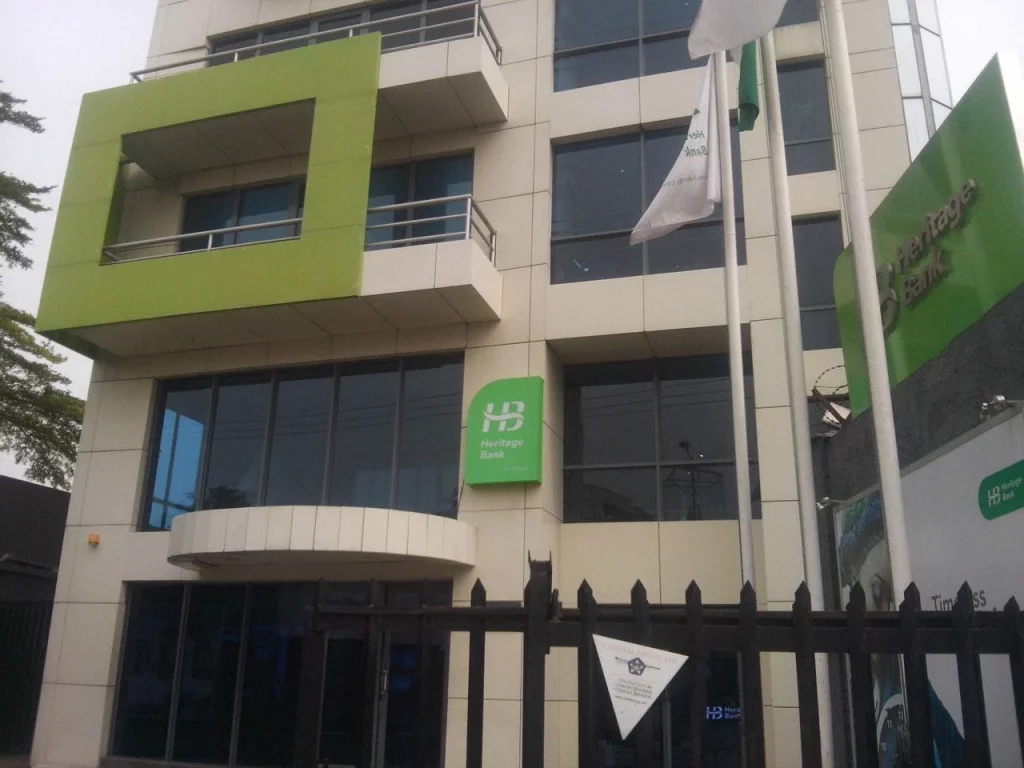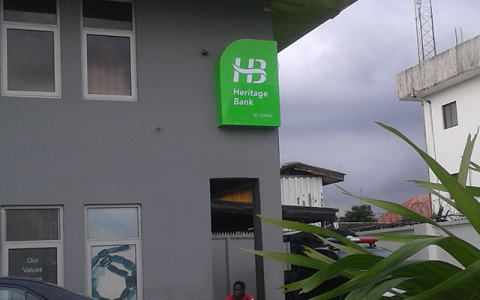The Nigerian Deposit Insurance Corporation (NDIC) visited several Heritage Bank branches on Monday morning as talks of a distress resolution takeover gather steam. TechCabal identified at least twelve NDIC officials at the Victoria Island, Allen Avenue, Ilupeju, and Ladiopo branches of the bank.
One of the officials at a branch office had a memo that showed they were on “special assignment.” The official declined to comment on the memo or provide any details.
At least two persons with direct knowledge of the situation claimed the special assignment is connected to a distress resolution and a takeover of Heritage Bank. The Banks and Other Financial Institutions Act (BOFIA) mandates the Central Bank to turn over significantly or critically under-capitalised banks to the deposit insurer for distress resolution.
A Heritage Bank spokesperson did not immediately respond to a request for comments. Three NDIC officials insisted any talks of a takeover was false and that today’s visit was part of a “routine exercise” going on at all banks.
A spokesperson for the Central Bank was unavailable for comments at the time of this report.
Heritage Bank’s high indebtedness has been public for five years and there has been significant coverage of the erosion of its capital base. In December 2023, a Nigerian publication claimed Heritage Bank failed a stress test, prompting the Central Bank to ask the financial institution to seek strategic investors to aid its recapitalisation.

According to one person familiar with the bank’s finances, it has negative shareholder equity—a metric that shows how much a company’s debts and liabilities outweigh the value of all its assets—of ₦900 billion.
Despite a deadline of April 2024 to communicate its recapitalisation plans to the Central Bank, Heritage Bank failed to make any progress in talks to raise money from investors, one person privy to those conversations said.
As those talks stalled, the bank laid off 1,000 employees in April 2024 and customers began experiencing difficulties accessing their deposits. TechCabal first reported those difficulties in June 2023.
“The bank’s regular recourse to the CBN’s short-term borrowing window highlights persistent liquidity resolution issues,” said a 2019 report from Proshare that showed its liquidity issues.
Established in 2012, Heritage Bank’s struggles began in 2018 after years of weak corporate governance led to questionable loan decisions. In 2014, it completed an ill-advised acquisition of Enterprise Bank for ₦56 billion, while betting on expanding its retail footprint. That bet backfired.
In 2015, the Treasury Single Account was implemented, reducing the amount of public funds in banks, raising the cost of funds for Heritage, and reducing deposits for a bank with a small customer base.
*This is a developing story
*Additional reporting by Ganiu Oloruntade, Muktar Oladunmade and Faith Omoniyi




















